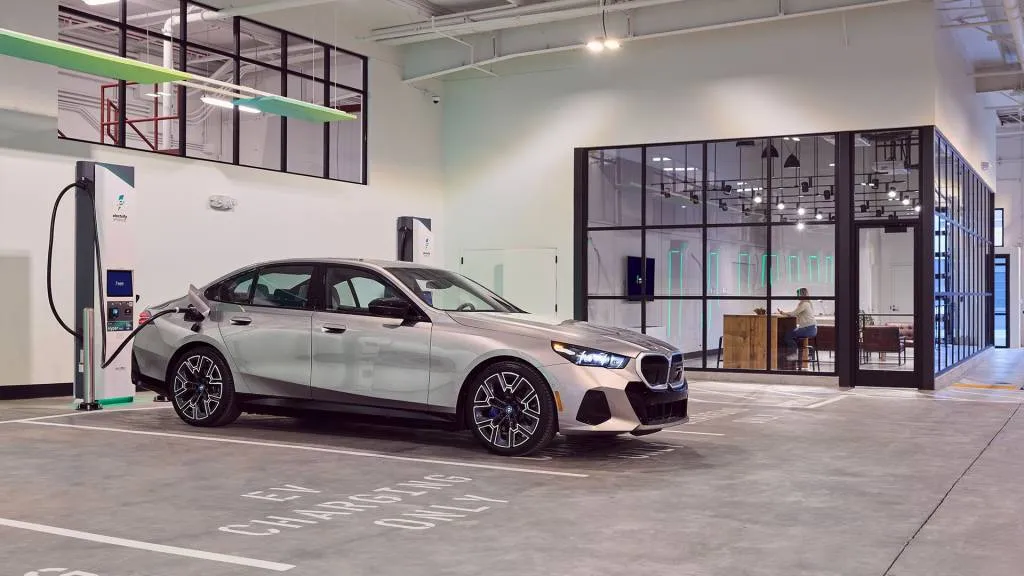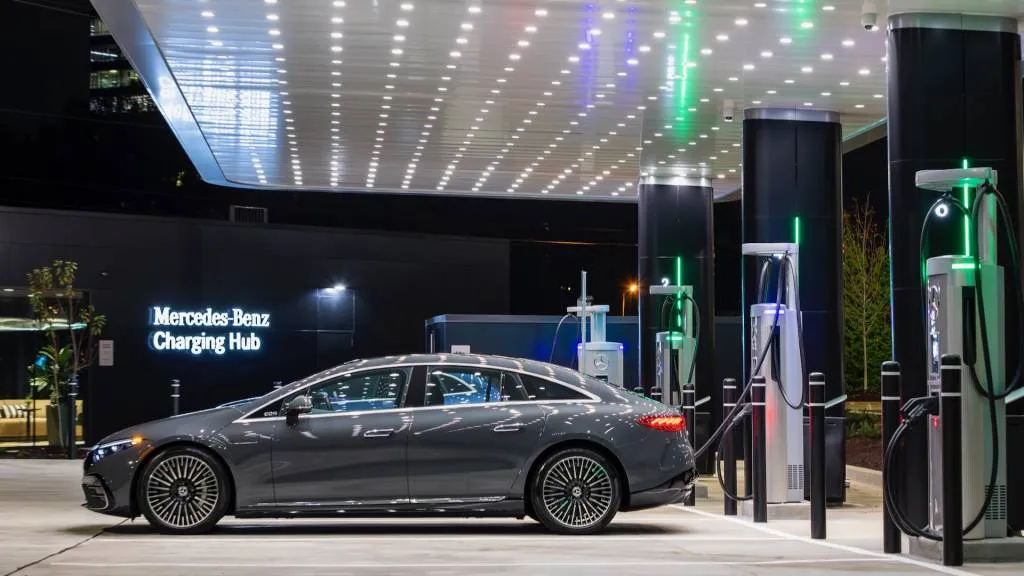Other EV charging networks are catching up to the Tesla Supercharger network in customer satisfaction, according to a new J.D. Power study.
The Tesla Supercharger network hasn't necessarily gotten worse in this areas, but other networks are improving, the study found. It still has the highest level of customer satisfaction among fast-charging networks, based on analysis of "millions of data points aggregated into six categories—interest, availability, adoption, affordability, infrastructure and experience," according to J.D. Power.
However, non-Tesla fast-charging networks saw a 19-point increase on J.D. Power's scale in the first quarter of 2024 compared to the previous quarter, while Tesla was down a point during that period. That's good news for EV drivers generally, as it indicates the non-Tesla charging experience is getting better, but potentially worrisome for Tesla, given the importance of the Supercharger network to the automaker's appeal.

First Electrify America indoor charging station opens in San Francisco
"Should Tesla’s Supercharger network experience a significant setback or increased competition from challenger brands, it could have a significant effect on a core component of the brand’s value proposition," J.D. Power said in a statement.
That leaves Tesla with a lot to lose—and considering its decision to fire nearly the whole Supercharger team, it's a puzzling decision for what many see as the main value proposition the company has to offer.
Meanwhile, customer satisfaction with public EV charging is up overall thanks to the non-Tesla networks, the study found. In the first quarter, customer satisfaction with DC fast charging increased 16 points compared to the previous quarter, while Level 2 AC charging customer satisfaction increased nine points from the previous quarter. J.D. Power says these are the largest quarter-over-quarter increases since it began collecting data in 2021.

Mercedes-Benz EV Charging Hub in Sandy Springs, Georgia
It brightens up the generally gloomy picture of public EV charging. One of J.D. Power's previous studies, from last year, suggesting that one in five charging attempts fails, was a wake-up call for the industry. Retailers aren't doing much to support EV charging either, suggested Consumer Reports in another study.
Some efforts have been made to address issues like unreliability, though. Recently the Department of Energy underscored that hardware makers and networks need to allow a little more flexibility in station controls—and that users would much rather get a reduced rate, flagged as such, than no charge at all.












